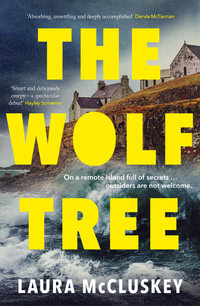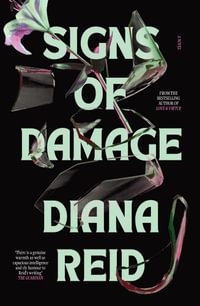
At a Glance
292 Pages
20.5 x 14.5 x 2.5
Paperback
$40.55
or 4 interest-free payments of $10.14 with
orAims to ship in 10 to 15 business days
A handsome boy and shy like his mother, David struggles with neuroses that cripple his ability to connect with other children, not to mention the tight-knit community around him. If not for his only friend Marianne--a pretty, enigmatic girl with religious leanings recently moved to the neighborhood--David's life would likely be intolerable. With Marianne, David captures brief moments of freedom and happiness, even as Marianne's family issues concerns about David's eccentricities." But the sudden death of Peter Nowak while David is still in high school, followed by Francine's ensuing alcoholism and depression, shatter any promise for normalcy in his life. Not yet 18, David inherits control of the piano company, but lacks the support or actual desire to manage its day-to-day activity. After Marianne is forced to break things off by her bullying father, David sells the company and leaves to travel around the world. In Taiwan, his life changes when he meets the daughter of a local madame--sharp-tongued Jia-Hui, whom he renames Daisy. Returning to the US, David's mother shuns his Asian bride, who struggles to communicate in (and relate to) her new culture.
Without any reason to stay in the East Coast, the couple, who now have a newborn son, buy an isolated country house in the foothills of Northern California's Polk Valley with the hope of creating a peaceful, if unusual, existence. But David's mood swings and psychosis spur brief disappearances and half-hearted suicide attempts, terrifying Daisy and upending their quiet life. Desperate, David seeks out Marianne, whose dedication to God led her to seek life as a nun. The resulting affair is spontaneous and brief, but produces a child nonetheless--a girl named Gillian--forcing Marianne to leave the Order, and confront the impossible challenges of single motherhood in the 1950s. Lacking many options, Marianne asks for help from the only people she can think of: the Nowaks. Ultimately, David and Daisy take the baby girl as their own, and Marianne agrees to disappear, with the profound repercussions of this decision driving the narrative to its shocking conclusion.
Gillian and Willian are raised as siblings in the modest country house, without exposure to visitors, friends, or family: home-schooled with a curriculum based on David's limited library of ancient and Biblical texts and sustained by Daisy's Taiwanese cooking. The children spend their days translating Latin and practicing classical music on the family's only extravagance, a pair of Nowak baby grands; all the while, David's mental health and stability continue to erode. When the inevitable arrives, and David plunges a knife into his stomach, he consoles himself with the fact that the Nowak fortune will support his family for the rest of their lives.
Daisy, the abandoned wife and lonely mother, knows only two things about her children: she will protect them from the terrifying world at large, and they will always have each other. With only occasional trips to fetch supplies at the small grocery store, the little house in Polk Valley is both an Eden and a prison for the two young people who have grown up entirely ignorant of current events, culture, and even modern history and science. But it's Daisy's solution for the future of her two children--inspired by a Chinese tradition of raising girls as tong yang xi, or sisterly wives for adoptive brothers--that exposes the deepest scars of Daisy's traumatic life, and the terrible inheritance her children must receive.
Framed by two suicide attempts, The Border of Paradise is told from multiple perspectives, culminating in heart-rending fashion as the young heirs to the Nowak fortune are forced to confront reality, their past, and the depravity of their isolation.
Industry Reviews
ISBN: 9781939419699
ISBN-10: 1939419697
Published: 12th April 2016
Format: Paperback
Language: English
Number of Pages: 292
Audience: General Adult
Publisher: Unnamed Press
Country of Publication: GB
Dimensions (cm): 20.5 x 14.5 x 2.5
Weight (kg): 0.3
Shipping
| Standard Shipping | Express Shipping | |
|---|---|---|
| Metro postcodes: | $9.99 | $14.95 |
| Regional postcodes: | $9.99 | $14.95 |
| Rural postcodes: | $9.99 | $14.95 |
How to return your order
At Booktopia, we offer hassle-free returns in accordance with our returns policy. If you wish to return an item, please get in touch with Booktopia Customer Care.
Additional postage charges may be applicable.
Defective items
If there is a problem with any of the items received for your order then the Booktopia Customer Care team is ready to assist you.
For more info please visit our Help Centre.
You Can Find This Book In

SIGNED COPY
Paperback
RRP $34.99
$20.95
OFF

SIGNED COPY
Paperback
RRP $34.99
$19.95
OFF

SIGNED COPY
Paperback
RRP $34.99
$22.75
OFF




















